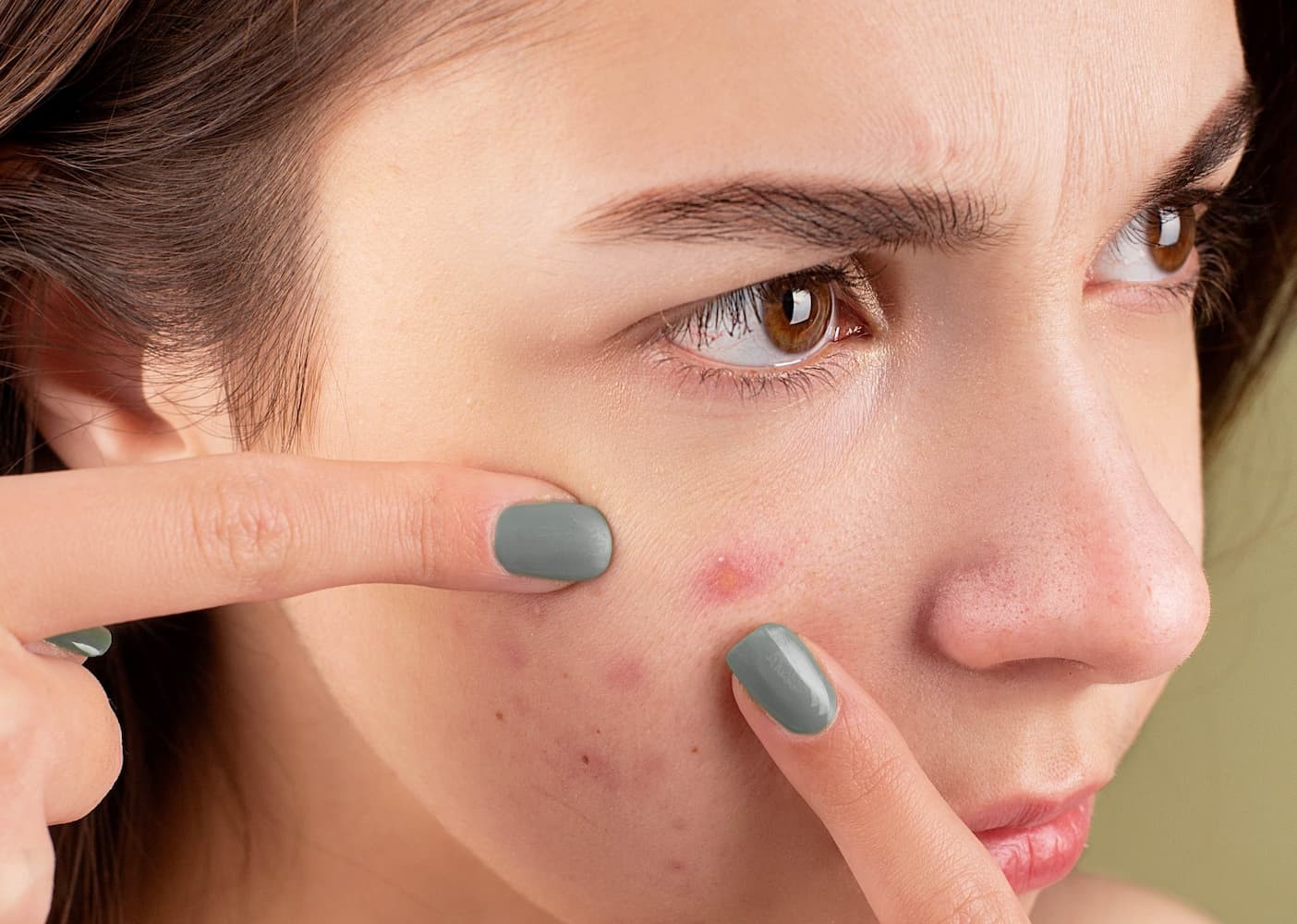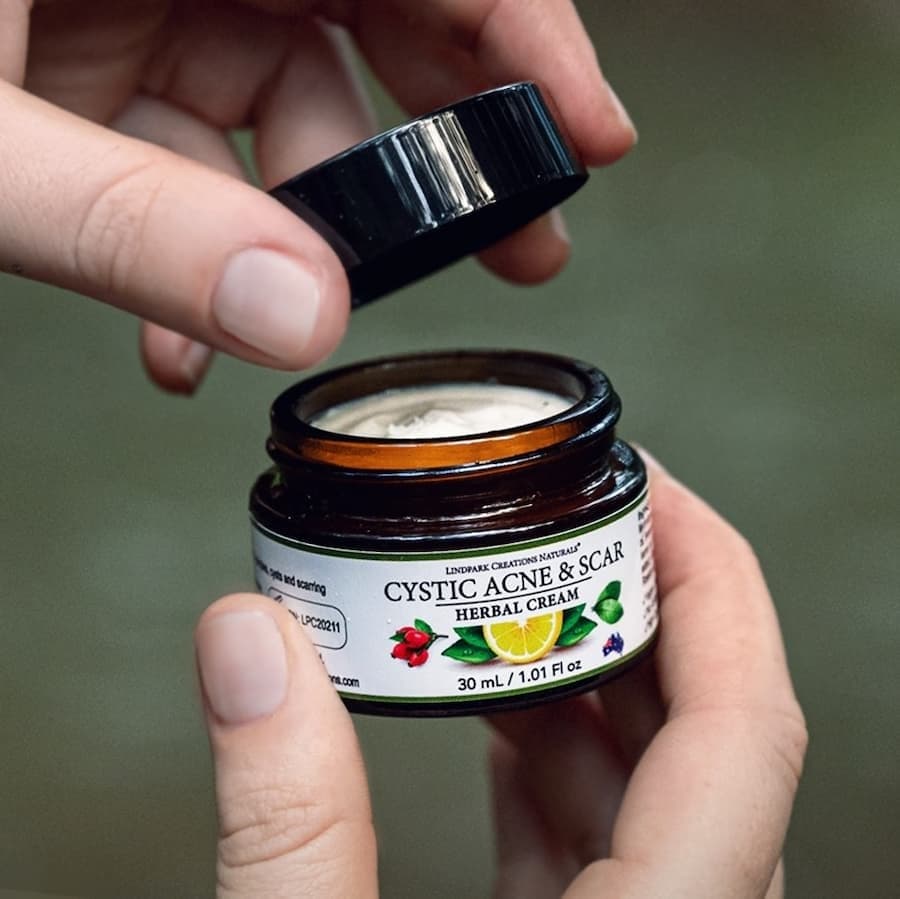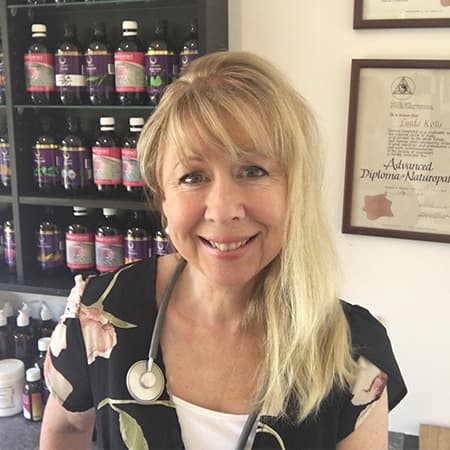
People who think acne is just a passing problem in a teenager's life are not looking at the full picture.
Parents, siblings, and everyone else who lives in close contact with a teen affected by acne know it is not a problem of vanity or a simple desire to blend in and feel accepted by their peers.
Twelve to eighteen years old is a critical age in the development of a teenager where they start observing social interactions and noticing what people like or dislike about them. Whether we accept it or not, physical appearance plays a big part in gaining self-esteem and building their identity.
But acne, especially cystic acne, which is the most serious type, is not just an aesthetic problem. Acne is mostly caused by hormonal imbalances that are typical of adolescence. This helps to explain why teens seem to "overreact" and blow up the issue disproportionately. The development of acne is what's dictating their emotional response to it. Talk about a vicious cycle!
Acne can also cause physical pain, as we can see in kids with severe "bacne" where many of them cannot sleep on their backs because of the pain.
In some cases, acne is worse than a character-building experience that lasts a couple of years and ends with adolescence as some people have acne well into adulthood.
The compounded social, emotional, and sometimes physical discomfort is enough to explain why many teenagers and their parents resort to Accutane as a treatment of acne and a quick fix for all their problems.
Initially, Accutane was considered a miracle drug to cure acne, over the years this alternative treatment has gained a negative reputation due to a long list of side effects including depression, birth defects, and suicidal thoughts.
Someone you know may have taken this drug and overlooked the side effects, only mentioning the great results they have experienced.
This article wants to provide some truth about Accutane; the facts below, which come from published research, are often left out of the conversation that young boys or girls and their parents have with their doctors and dermatologists about acne medications. But, I think it's important that we bring those issues to the table, so people can make an informed choice when choosing an acne treatment.
10 Things They Don't Want You to Know About Accutane
1. It was developed as a chemotherapy drug
Accutane has been used for decades in chemotherapy treatments because it decreases cellular proliferation in the body. Put simply, it prevents many types of cells from multiplying in the skin, bones, digestive system, mucous membranes, and brain.
Skin dryness and acne reduction just happen to be two of their side effects.
As you can imagine, this impedes your body's ability to produce certain cells that may harm the health of your organs on top of skin health.
2. The manufacturer doesn't know how it works
The Physician's Desk Reference of Hoffmann-La Roche AG states that "the exact mechanism of action is unknown". This means that the company that created this drug doesn't understand how it works, how it reduces acne, or how it causes its many side effects.
Whether they don't know it or don't want to disclose it, it is a bit concerning, isn't it?
3. It is considered one of the most dangerous drugs ever approved
Some consider Accutane as one of the most dangerous products on the market for the last 25 years.
It's among the top four drugs that attract the most reported adverse drug reactions on the FDA's database (the US Food and Drug Administration).
The list of side effects and warnings in the US Physician's Desk Reference is 7 pages long.
Since this drug was approved by the FDA in the United States in 1982, its warning label has been modified more than 50 times to modify the list of adverse reactions it can cause. The list of warnings in Roche's official Accutane Medication Guide is not for the faint-hearted. Here are some of them for you to consider:
- "Certain symptoms may mean that your internal organs are being damaged. These organs include the liver, pancreas, bowel, and esophagus. If your organs are damaged, they may not get better even after you stop taking Accutane."
- "Some people taking isotretinoin [the active ingredient included in Accutane] have developed hearing problems. It is possible that this hearing loss can be permanent."
- There are reports that some patients had stunted growth after taking Accutane for acne as directed.
- "Accutane can increase the pressure in your brain. This can lead to permanent loss of eyesight and, in rare cases, death."
Sure, many drugs boast a long list of scary warnings, but this one is pretty impressive especially for a drug prescribed to children who are still in the early development phase of their lives.
4. It causes vitamin A toxicity
Accutane is estimated to be 100 times more potent than vitamin A supplements which are why the side effects of Accutane look like vitamin A intoxication.
A 1972 study showed that the ingestion of large amounts of vitamin A is known to cause depression and psychiatric illness.
Other symptoms of high dose vitamin A are anorexia, dry skin, irritated skin, dry eyes, alopecia, swelling of the brain, fatigue, and somnolence.
5. It can cause birth defects and miscarriages
Don't take my word for it. Again, read what Roche's included in Accutane's list of contraindications:
"Accutane must not be used by female patients who are or may become pregnant. There is an extremely high risk that severe birth defects will result if pregnancy occurs while taking Accutane in any amount, even for short periods of time. Potentially any fetus exposed during pregnancy can be affected. There are no accurate means of determining whether an exposed fetus has been affected."
"Birth defects that have been documented following Accutane exposure include abnormalities of the face, eyes, ears, skull, central nervous system, cardiovascular system, and thymus and parathyroid glands. Cases of IQ scores less than 85 with or without other abnormalities have been reported. There is an increased risk of spontaneous abortion, and premature births have been reported."
6. It speeds up the aging process by prematurely drying out the entire body
Take a look around: how many people in their fifties, sixties, or seventies do you see with oily skin or have acne issues? Close to none, I'd say. That's because, as the body ages, the skin gradually dries out. This means that oily and pimply skin is a clear sign of youth!
Now it's understandable that teenagers don't want to hear about the benefits of shiny foreheads and red cheeks. They also definitely don't think about the long-term consequences when the prospect of clearer skin is on the line.
However, the effect of extreme dryness happens (in varying degrees) to everybody. However, young people who take Accutane feel like an 80-year-old in an 18-year-old body.
Sometimes, these effects stay with people with acne for their entire life, even if they've only taken the drug for a short period.
7. It has been linked to depression and suicide
There is plenty of evidence to support the link between Accutane and depression as well as suicide.
Suicidal tendencies have been recorded even in patients with no prior history of psychiatric symptoms or suicide attempts.
"Stacy and Mike Baumann of Mundelein Illinois lost their son Daniel to suicide in December 1999. Daniel began Accutane treatment in July 1999. He suffered many adverse effects; chapped lips, dry skin and itching, joint and muscle pain, headaches, nausea, loss of appetite, mood swings, and insomnia. The physician thought his depression was school-related and never mentioned the FDA warning."
8. It can permanently affect libido and sexual pleasure
According to Kevin Pezzi, M.D. The Science of Sex: "While there are many drugs that interfere with one or more aspects of sexuality while the user is taking them, with one exception all of these problems resolve once the drug is discontinued. The only drug that can permanently affect libido and sexual pleasure in some people is Accutane."
One reason for wanting to get rid of acne is to become more attractive to the eyes of a potential partner. But what's the point if the treatment has a high risk of damaging a couple's sexual life for years to come?
9. It has generated many "survivor" online support groups
Roche itself has admitted several years ago that there were over 40,000 Accutane adverse drug reaction reports on the database at their headquarters in Basel, Switzerland. It is not surprising that teens look for answers and help where they spend most of their time; online.
Over the years, many groups have been created on social media to offer support to people struggling with the infamous Accutane's side effects. Their names speak for themselves: "Girls Helping Girls with Accutane", "Accutane Long Term Side Effects" and "Accutane Survivors, Roaccutane, Isotretinoin Injuries & Side Effects" to name a few. Pretty telling, isn't it?
10. Severe side effects can appear months or even years later
People often don't associate problems with Accutane because of their latency. Some acne patients had the worst side effects appear months after finishing the treatment. Many others talk about having side effects up to five years down the track, while some dealt with its aftermath 10 to 15 years later.
Roche states that Accutane's side effects immediately disappear after cessation of treatment. The reality is that some people who took the drug when it first became available in 1982 are still suffering from side effects 20 years later.
Even more concerning is the fact that, as of today, there doesn't seem to be an antidote or a medical treatment to counteract all the permanent negative effects caused by this drug.
To summarise, these are the possible side effects of Accutane:
- Dry skin, skin irritation, clogged pores, and wrinkles
- Chronic dry eye and dry nasal passages
- Hearing problems
- Eczema
- Hyper-pigmentation
- Scarring
- Hair loss
- Infertility
- Sexual problems (eg. erectile dysfunction and loss of libido)
- Insomnia
- Depression
- Anxiety
- Mental changes
- Suicidal thoughts
- Liver toxicity
- IBS and gut microbiome dysbiosis
- Joint pain and muscle weakness
- Blood sugar imbalances
So why do people take the risk? Have they not been informed about the potential reactions? Are they only focusing on the results, overlooking the long-term side effects of this counter acne product?
Accutane is often prescribed as the first therapy, even for people with hormonal acne, mild acne, or moderate acne. This shouldn't be the case since there are natural remedy alternatives that can bring the desired results with fewer or no side effects.
Bill Sardi, an investigative health journalist writes: "An ongoing human horror story surrounds Accutane, the vitamin A drug used to treat acne. An untold number of Accutane users face lifelong chronic side effects, and doctors offer no solutions to these problems."
But there is hope.
Effective natural remedies for acne would eliminate the appalling side effects of Accutane.
What a Natural Acne Treatment Can Do for You
During the first 28 years of my life, I suffered from eczema, acne, asthma, allergies, urticaria, and alopecia. No one better than me understands what it means to fight against skin conditions!
I turned to naturopathy and herbal medicine to cure myself and help other people in similar situations. I've spent over 20 years in the natural medicine field, successfully treating sensitive skin diseases including cystic acne in the most natural way possible through my natural remedy range.
Quick Solutions
- Balance hormones: use functional testing then modify with herbs
- Adopt an acne diet: determine food sensitivities
- Reduce stress: use herbal medicine to relax the nervous system
- Switch to topical treatments: use natural topical herbal creams and cleansers
LindPark Creations Naturals is the herbal skincare product range I developed for my patients. It is a natural treatment that combines the finest practitioner-strength herbs and vitamins, along with other natural ingredients to quickly and effectively alleviate the most severe acne and skin issues.
I tell my acne patients that you can have a natural acne treatment that doesn't make acne worse and has no side effects!
Want your self-esteem and social life back?
Try our Cystic Acne & Scar Herbal Cream.

Our Cystic Acne & Scar Herbal Cream works fast to fight acne breakouts and scarring:
- Enriched with tea tree oil, thyme, nigella, and myrrh, traditionally known for their antibacterial and anti-fungal actions to fight fungus and bacteria at the source and prevents acne from spreading. Think of this cream as a "natural antibiotic" for the skin, without the nasty side effects!
- Contains a calming and nutritive antioxidant blend of vitamin E, calendula, rosehip, and lavender.
- Blackheads and the appearance of pores are not a problem due to the powers of green tea extract and lemon essential oil
- A beautiful scent and best of all works fast.
Sources:
Hoffmann-La Roche's Cover-up of Accutane - Nathan C. Carr
Accutane contraindications warnings - FDA










